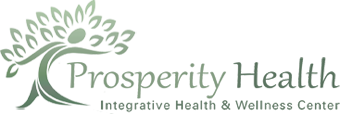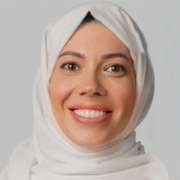Arabic Doctor Nishath Hakim Addresses Unique Healthcare Concerns of Muslim Women
Our Doctors Respect the Religious & Cultural Needs of Muslim Women
Muslim women face unique healthcare challenges that extend far beyond medical symptoms to include cultural considerations, religious practices, and deeply held values that must be respected and understood. But this intersection of faith, culture, and healthcare often creates complex situations that require not only medical expertise but also cultural sensitivity and genuine understanding of Islamic principles and traditions.
While the Detroit area is home to thousands of Arabic individuals, many Muslim women struggle to find healthcare providers who truly comprehend their needs. And this can lead to delayed care, inadequate treatment, or avoidance of necessary medical attention due to concerns about cultural misunderstanding or insensitive care.
The importance of finding a healthcare provider who shares similar cultural background and religious understanding cannot be overstated, as this connection enables open communication, builds trust, and ensures that medical care aligns with personal values and religious requirements. Muslim women often face additional barriers to healthcare access, including language barriers, modesty concerns, dietary restrictions, prayer obligations, and family dynamics that can significantly impact their healthcare experience and outcomes. These challenges are particularly pronounced in communities where Muslim women may feel misunderstood or marginalized within the broader healthcare system.
At Prosperity Health in the Troy, MI area, Arabic woman doctor Nishath Hakim brings both exceptional medical expertise and deep cultural understanding to address the unique healthcare needs of Muslim women. Dr. Hakim’s Arabic heritage provides her with invaluable insight into the cultural, religious, and social factors that influence Muslim women’s health and healthcare decisions. This combination of medical excellence and cultural competency creates a safe, understanding environment where Muslim women can receive comprehensive healthcare that honors their values while addressing their medical needs with compassion and respect.
The Importance of Cultural Competency for Muslim Woman Doctor Care
Cultural competency in healthcare extends beyond simple awareness of different customs to include deep understanding of how religious beliefs, cultural practices, and social expectations influence health behaviors, treatment compliance, and healthcare decision-making processes. For Muslim women, cultural competency means having a healthcare provider who understands the significance of modesty requirements, the importance of family involvement in healthcare decisions, and the need to consider religious obligations when planning treatment schedules and recommendations.
The impact of cultural misunderstanding in healthcare settings can be profound, leading to misdiagnosis, inappropriate treatment recommendations, poor patient compliance, and overall dissatisfaction with healthcare experiences. Muslim women may face challenges such as male healthcare providers who don’t understand modesty requirements, scheduling conflicts with prayer times or religious observances, dietary recommendations that conflict with halal requirements, or treatment plans that don’t consider family dynamics and decision-making processes that are important within Islamic culture.
Having a healthcare provider who shares cultural background and religious understanding eliminates many of these barriers and creates an environment where Muslim women feel comfortable discussing sensitive health issues, asking questions about how treatments might affect their religious practices, and receiving care that aligns with their values and beliefs. Troy, MI area female doctor Nishath Hakim provides culturally sensitive healthcare that acknowledges and respects the unique needs of Muslim women while delivering the highest quality medical care available.
Addressing Modesty and Privacy Concerns with a Muslim Woman Doctor
Modesty requirements represent one of the most significant healthcare concerns for many Muslim women, as Islamic principles emphasize the importance of maintaining privacy and dignity during medical examinations and procedures. These requirements can create anxiety and barriers to healthcare access when Muslim women are unsure whether their modesty needs will be understood and respected by healthcare providers. The presence of male healthcare providers, inadequate privacy measures, or insensitive handling of modesty concerns can lead to delayed or avoided medical care. But you can visit Prosperity Health in the Troy, MI area with confidence, knowing that there are no male doctors at our practice.
The concept of hijab extends beyond head covering to include broader principles of modesty that affect how Muslim women interact with healthcare providers, particularly regarding physical examinations, discussions of reproductive health, and treatment of conditions that require exposure of the body. Understanding these principles and implementing appropriate measures to maintain modesty while providing thorough medical care requires specialized knowledge and sensitivity that not all healthcare providers possess.
Our female healthcare providers understand Islamic modesty requirements and offer Muslim women the comfort and security needed to receive comprehensive medical care without compromising their religious values. This includes ensuring adequate privacy, providing appropriate draping during examinations, understanding when mahram accompaniment may be preferred, and creating an environment where Muslim women feel their modesty is protected and respected. Troy, MI area female doctor Nishath Hakim provides healthcare in a setting that fully respects and accommodates modesty requirements while ensuring that medical care is thorough and comprehensive.
Reproductive Health Care from a Female Muslim Doctor
Reproductive health represents a particularly sensitive area of healthcare for Muslim women, involving topics that require cultural sensitivity, religious understanding, and careful navigation of personal values and medical needs. Issues such as contraception, fertility treatments, prenatal care, and gynecological health must be discussed within the context of Islamic principles and individual circumstances, requiring healthcare providers who understand both the medical and religious aspects of these concerns.
Family planning decisions within Islamic culture often involve consideration of religious teachings, family dynamics, and cultural expectations that may differ significantly from mainstream approaches to reproductive health. Muslim women may have questions about which contraceptive methods are permissible according to Islamic law, how fertility treatments align with religious principles, or how to balance personal health needs with religious and cultural obligations regarding childbearing and family size.
Prenatal care for Muslim women may involve special considerations regarding dietary requirements during pregnancy, fasting during Ramadan while pregnant or breastfeeding, prayer accommodations during labor and delivery, and postpartum practices that align with Islamic traditions. Understanding these needs and providing appropriate guidance requires healthcare providers who are knowledgeable about Islamic practices. Troy, MI area female Arabic doctor Nishath Hakim offers comprehensive reproductive healthcare support that honors Islamic principles while providing evidence-based medical care that supports optimal health outcomes.
Mental Health Support from a Muslim Woman Doctor
Mental health concerns among Muslim women often involve complex interactions between personal struggles, cultural expectations, religious beliefs, and social pressures that require specialized understanding and culturally appropriate treatment approaches. Many Muslim women face unique stressors related to cultural adaptation, discrimination, family dynamics, and the challenge of balancing traditional values with modern life demands, all of which can impact mental and emotional wellbeing.
The stigma surrounding mental health issues within some Muslim communities can create additional barriers to seeking help, as women may worry about bringing shame to their families or being perceived as lacking in faith if they struggle with depression, anxiety, or other mental health conditions. Having a healthcare provider who understands these cultural dynamics and can address mental health concerns within an Islamic framework can be crucial for encouraging women to seek the help they need.
Islamic principles of healing and wellness can be integrated with evidence-based mental health treatments to create comprehensive approaches that address both psychological and spiritual aspects of wellbeing. This may include discussing how Islamic practices such as prayer, meditation, community support, and reliance on Allah can complement medical treatments for mental health conditions. Troy, MI area female doctor Nishath Hakim provides compassionate mental health support that incorporates understanding of Islamic values while utilizing effective therapeutic interventions to help Muslim women achieve optimal emotional and psychological wellness.
Nutritional Guidance and Halal Considerations from a Female Muslim Doctor
Nutritional counseling for Muslim women must take into account halal dietary requirements, cultural food preferences, and religious observances such as Ramadan fasting that can significantly impact dietary patterns and nutritional status. Many healthcare providers lack understanding of Islamic dietary laws and may provide nutritional recommendations that conflict with religious requirements, creating confusion and compliance challenges for Muslim patients.
Ramadan fasting also presents unique nutritional considerations that require specialized knowledge to provide appropriate guidance for maintaining health while observing religious obligations. This is particularly important for Muslim women who are pregnant, breastfeeding, diabetic, or managing other health conditions that may be affected by changes in eating patterns during the holy month. Understanding both the religious significance of fasting and the medical implications requires cultural and religious knowledge combined with nutritional expertise.
Traditional Middle Eastern and South Asian cuisines that are common among Muslim communities have unique nutritional profiles and health benefits that should be considered when providing dietary guidance. Rather than dismissing cultural foods in favor of generic nutritional recommendations, Arabic doctor Nishath Hakim will work within traditional Muslim dietary patterns to promote optimal health while respecting cultural preferences and religious requirements. Troy, MI area female doctor Nishath Hakim provides nutritional guidance that respects halal requirements and cultural food traditions while promoting optimal health through evidence-based dietary recommendations.
Managing Chronic Conditions with Muslim Woman Doctor Expertise
Chronic disease management for Muslim women requires consideration of how religious practices, cultural factors, and family dynamics may impact treatment compliance, lifestyle modifications, and long-term health outcomes. Conditions such as diabetes, hypertension, thyroid disorders, and autoimmune diseases require ongoing management strategies that must be adapted to accommodate prayer schedules, fasting obligations, dietary restrictions, and cultural approaches to health and illness.
Medication management may involve special considerations for Muslim women, including ensuring that medications are halal, adjusting dosing schedules around prayer times and fasting periods, and understanding how cultural attitudes toward illness and treatment may affect compliance with medical recommendations. Some medications may contain ingredients derived from non-halal sources, requiring healthcare providers to work with patients to find appropriate alternatives when necessary.
The role of family in healthcare decision-making within Muslim communities can significantly impact chronic disease management, as treatment plans may need to consider family input, support systems, and cultural expectations regarding caregiving and illness management. Understanding these dynamics and working collaboratively with patients and their families can improve treatment outcomes and patient satisfaction. Troy, MI area woman doctor Nishath Hakim provides comprehensive chronic disease management that takes into account religious, cultural, and family factors while ensuring optimal medical care and health outcomes.
Preventive Care and Health Screening for Muslim Women
Preventive healthcare for Muslim women must address potential barriers to screening and early detection services while providing education about the importance of regular health maintenance within an Islamic framework. Many Muslim women may delay or avoid certain screening procedures due to modesty concerns, lack of female healthcare providers, or cultural misconceptions about preventive care.
Cancer screening programs, including mammography, cervical cancer screening, and colonoscopy, may require special accommodations to ensure that Muslim women feel comfortable participating in these important preventive measures. This includes ensuring female technicians when possible, providing adequate privacy and modesty protection, and educating women about the Islamic perspective on preventive healthcare and early detection of disease.
Health education for Muslim women should incorporate Islamic principles of taking care of one’s body as a trust from Allah, emphasizing the religious obligation to maintain health and seek medical treatment when needed. This approach can help overcome cultural barriers to preventive care while encouraging Muslim women to take an active role in maintaining their health. Troy, MI area female doctor Nishath Hakim provides comprehensive preventive care services that are culturally appropriate and respectful of Islamic values while ensuring that Muslim women receive all necessary screening and preventive interventions for optimal health maintenance.
Building Trust and Communication with a Muslim Woman Doctor
Effective communication between healthcare providers and Muslim women requires understanding of cultural communication styles, family dynamics, and the importance of building trust through demonstrated respect for religious and cultural values. Many Muslim women may feel more comfortable discussing sensitive health issues with female healthcare providers who share their cultural background and understand their unique concerns and perspectives.
The development of trust in healthcare relationships is particularly important for Muslim women who may have experienced cultural insensitivity or discrimination in previous healthcare encounters. Building this trust requires consistent demonstration of cultural respect, religious sensitivity, and genuine care for patients’ overall wellbeing, not just their medical conditions. Troy, MI area female Arabic doctor Nishath Hakim builds strong therapeutic relationships with her patients through cultural understanding, effective communication, and deep respect for Islamic values and traditions.
Arabic Female Doctor for Muslim Women | Troy, MI Area
Finding healthcare that truly understands and respects your cultural and religious values while providing exceptional medical care should not be a challenge that Muslim women have to face in their pursuit of optimal health and wellbeing. The unique healthcare needs of Muslim women require providers who combine medical expertise with genuine cultural competency and Islamic understanding to create healthcare experiences that honor your values while addressing your health concerns comprehensively.
At Prosperity Health in the Troy, MI area, female doctor Nishath Hakim offers the cultural sensitivity, religious understanding, and medical excellence that Muslim women deserve, creating a healthcare environment where you can feel comfortable, respected, and confident in the care you receive. Don’t compromise your values or delay necessary healthcare due to concerns about cultural sensitivity – schedule an appointment today with an Arabic, female doctor who understands your unique needs and is committed to providing exceptional healthcare that honors your faith, respects your culture, and supports your journey toward optimal health and wellness.











